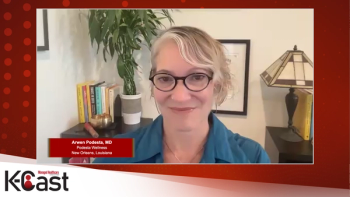
Mental Health First Aid Training: 4 Reasons Health Orgs Should Participate
This evidence-based training program can help communities better understand how to connect, not correct, individuals who may be struggling with mental health issues.
According to the National Alliance on Mental Illness (NAMI), one in five Americans experiences a mental health issue any given year. But despite the prevalence of mental illness, most people will tell you they are unfamiliar with such disorders.
“People may not realize just what a mental illness really is,” says Sara Hynes, Education and Community Training Director at NAMI DuPage in Illinois. “They see things in the media or in the movies-but there hasn’t been a basic training to just help community members who want to learn more about what mental health issues really look like and how to help people who may be dealing with them.”
In the late 1990s, Australian nurse, Betty Kitchener, and her husband, Professor Tony Jorm, lamented the lack of programs to help educate people, both inside and outside of the healthcare community, about mental health. The duo then created Mental Health First Aid (MHFA), an evidence-based, skills training program to help educate individuals in the community about the best ways to support those with mental health problems.
“The program teaches people the basic signs and symptoms of mental health and addiction issues,” says Betsy Schwartz, vice president of Public Education and Strategic Initiatives at the National Council for Behavioral Health. “But, perhaps more importantly, it helps people understand how to have a conversation with someone about mental health-and encourage people, if the person needs help, to get the help they need.”
Here are four reasons why healthcare organizations should participate in MHFA training:
1. To educate the community. Hynes says that one of the great things about MHFA is that it really is for everyone.
“It’s a wonderfully flexible program-we have trained teachers, healthcare workers, social workers, and just general community audiences,” says Hynes. “The curriculum allows us to be flexible and allow some great conversations to happen. But it also helps people understand what mental illness is and what it is not.”
MHFA gives an overview of the basics of mental health, including the prevalence, as well as the symptoms involved with common conditions. Hynes says it offers participants a more solid understanding of what are very common behavioral health conditions.
“So many of our participants leave saying things like, ‘Oh, I never realized that was what mental illness is,’ or ‘I just thought it was someone being irritable or just someone’s personality,’” says Hynes. “It’s important to give the community a better picture of what mental illness is-and what people who have a mental health disorder may be going through. It’s also important that people understand that there is hope for recovery-and there are good treatments out there.”
2. To reduce stigma. The consequence of all that MHFA education? It can help reduce the stigma surrounding mental illness.
“The reality is that there’s still a huge stigma against mental illness. So much of that is because people don’t understand it,” says Hynes. “The only cure for stigma is education. When we can replace all those misconceptions people have with factual information, it makes a huge difference.”
Schwartz agrees, though she states that was not the initial aim of MHFA. “Just by normalizing mental health and addiction problems, and giving people the skills to talk with them, it helps to eliminate the stigma.”
3. To start the conversation. A big part of the MHFA program are developing skills to help communicate with individuals with mental health disorders. This includes healthcare personnel who may interact with patients at the front desk or in the billing office-as well as other community members.
Related:
“People are often afraid to have a conversation with someone who has a mental illness. They say they just don’t know what to say,” says Schwartz. “Having the right knowledge is the first step-but giving people the tools to not be afraid, to have a conversation with someone who may have a mental health condition, can make a big difference. Sometimes, all someone really needs is just to talk to someone.”
Hynes says most people have no problems starting a conversation with someone who has the flu or other medical condition. It’s important that community members understand that it can be just as easy to start a conversation with someone who has depression, a substance misuse disorder, or other mental illness.
“Once you have the right knowledge, you can come into that conversation in a non-judgmental way, facilitate that communication, and be there to listen,” she says. “Sometimes listening can make all the difference.”
4. To connect people to care. Hynes says one of the most important reasons to offer MHFA is that it can help connect individuals who may be struggling with the care they need.
“I always say it’s about connecting not correcting people,” says Hynes. “MHFA also gives you the tools and resources to help connect people to care that best fits their situation.”
Schwartz adds that MHFA helps to remove some of the fear and doubt that many may experience when interacting with someone with a mental health disorder-and direct them to appropriate treatment.
“We know that once people get help, they are much more likely to live productive lives,” says Schwartz. “If we can help people in our community have those conversations, direct people who need it to care, we are just one step closer to doing that.”
To learn more about MHFA and how it can make an impact in your community, visit
Kayt Sukel is a science and health writer based outside Houston.
Newsletter
Get the latest industry news, event updates, and more from Managed healthcare Executive.




















